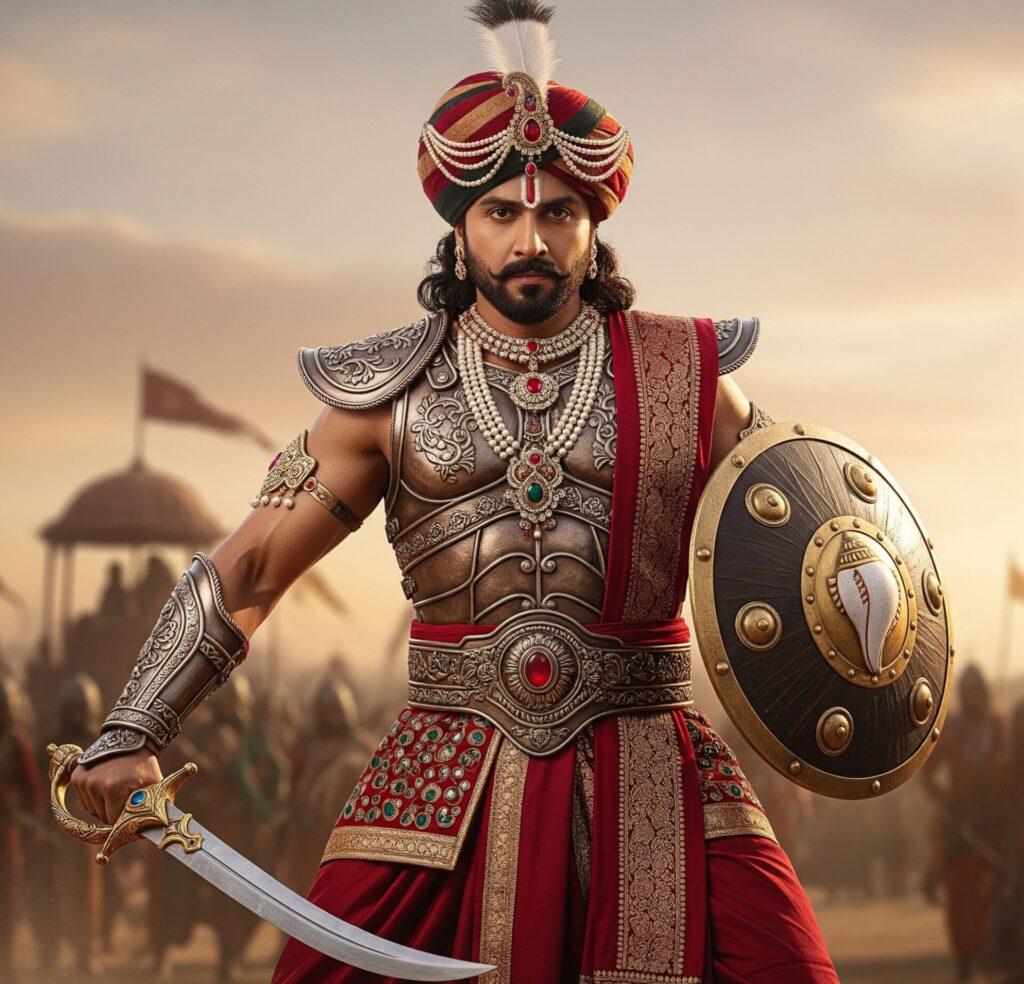Yuyutsu: The Unsung Hero of the Mahabharata
In the vast epic of the Mahabharata, filled with legendary warriors and intricate family dynamics, one character often slips under the radar: Yuyutsu. As a lesser-known son of Dhritarashtra, Yuyutsu embodies righteousness, loyalty, and moral courage. While the spotlight shines on the Kauravas and Pandavas, Yuyutsu‘s story offers profound lessons on choosing the path of dharma. Let’s dive into the life and legacy of Yuyutsu, exploring his origins, key contributions, and why he deserves more recognition.

The Birth and Background of Yuyutsu
Yuyutsu was born to King Dhritarashtra and Sugadha, a maid who served Queen Gandhari. This makes him a “dasiputra” or son of a maid, a status he shared with the wise Vidur. Gandhari’s pregnancy with the 100 Kauravas and their sister Dushala lasted an unusually long two years, causing widespread concern in the kingdom. Fearing that Gandhari might not deliver any children, Sugadha conceived Yuyutsu during this time, ensuring the royal line had an heir.
Interestingly, Yuyutsu was roughly the same age as the Kauravas. His name itself is intriguing—”Yuyutsu” derives from “Yu” meaning yuddha (fight) and “utsu” meaning curiosity, translating to “the one who is curious to fight.” His mother belonged to the Vaishya varna, which is why the Mahabharata sometimes refers to him as Vaishyaputra. Despite his humble origins, Yuyutsu grew up amidst the royal intrigues of Hastinapura, forging his own path of integrity.
Similarities Between Yuyutsu and Vidur
Yuyutsu shares striking parallels with Vidur, another prominent figure in the Mahabharata. Both were dasiputras, born to maids in the royal household. Their loyalty lay not with blind allegiance to the Kauravas but with Yudhishthira, the eldest Pandava, whom they admired for his adherence to truth and justice. As devotees of Lord Krishna, Yuyutsu and Vidur were known for their truthfulness and intelligence, often acting as voices of reason in turbulent times.
These similarities highlight a recurring theme in the epic: true nobility stems from character, not birth. Yuyutsu, like Vidur, navigated the complex web of family loyalties with wisdom, proving that even those on the fringes of power can influence the course of history.
Yuyutsu’s Role in Protecting the Pandavas
Though Yuyutsu played a supporting role in the Mahabharata, his actions were pivotal. He held great respect for his elder cousin Yudhishthira and consistently worked to safeguard the Pandavas from harm. One notable instance was when Yuyutsu warned Bhima about Duryodhana’s plot to poison him, potentially saving Bhima’s life and averting a major crisis for the Pandavas.
As tensions escalated toward the great Kurukshetra war, Yuyutsu made a bold choice. He defected from the Kaurava camp and joined the Pandavas, aligning himself with dharma over familial ties. Classified as a Maharathi (a skilled chariot warrior), Yuyutsu fought valiantly on the side of righteousness. Remarkably, he was the only son of Dhritarashtra to survive the devastating 18-day battle, a testament to his strategic acumen and divine favor.
Yuyutsu’s Legacy After the War
In the aftermath of the Mahabharata war, Yuyutsu‘s wisdom continued to shine. With the kingdom in ruins and young Parikshit ascending as king, Yudhishthira entrusted Yuyutsu with the administration of the realm. This role underscored his reliability and commitment to stability during a fragile transition.
Yuyutsu is remembered today for his unwavering righteousness and the courage to choose truth over convenience. In an epic dominated by larger-than-life figures, Yuyutsu stands as a symbol of moral clarity—proof that even “minor” characters can embody the core values of dharma.
If you’re fascinated by the Mahabharata’s hidden gems like Yuyutsu, share your thoughts in the comments below. Who else do you think deserves more spotlight in ancient epics? For more insights into mythology and history, subscribe to our blog!




